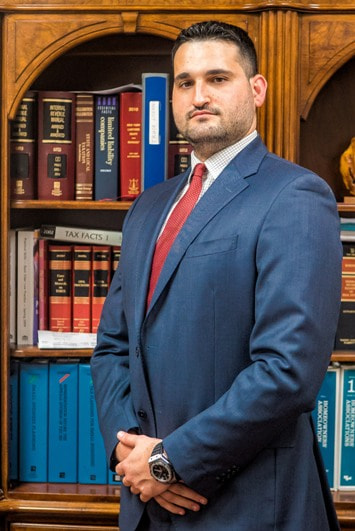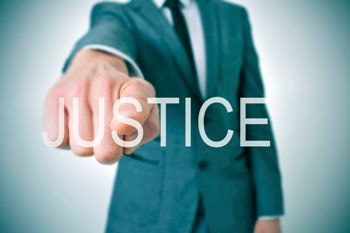Chapter 7 Bankruptcy
- Chapter 7 bankruptcy knowledge
- Chapter 7 bankruptcy ky
- Chapter 7 bankruptcy explained
- chapter 7 bankruptcy deleted
But while this part of the process may sound intimidating, it typically only involves a few creditors. These include car creditors and members of the IRS to determine how you're going to pay back non-dischargeable back taxes, if any. In most cases, the creditors meeting marks the only time you would visit the court house. About 60 days following the meeting, you must take a budget counseling course and receive a certificate of completion. You can complete this online or by phone. Following this course, you remain in a holding position of sorts. The trustee examines your assets, liquidates non-exempt property and discharges what can be forgiven. Until the court sends you a notice detailing approved discharges, however, you can't run a business with inventory. At this point, you still can't sell or donate any property without the court's consent. What Do I Do After Chapter 7 Bankruptcy? Chapter 7 bankruptcy remains on your credit report for 10 years, so it will affect your credit score. But with some or all of your debt wiped out, you have a fresh start.
Chapter 7 bankruptcy knowledge

Chapter 7 bankruptcy ky
chapter 7 bankruptcy If you're trapped under a pile of debt, bankruptcy may be your last resort. Chapter 7 bankruptcy is the most common form. It can wipe out your debt and give you a fresh start. This article will explain how to file for chapter 7 bankruptcy and everything you need to know to go through the process. A financial advisor can also help you stay on track during and after the proceedings. What is Chapter 7 Bankruptcy? Chapter 7 bankruptcy is also called "straight liquidation. " In a nutshell, a court-approved trustee examines all your debt, property and assets. The trustee then liquidates or sells your property, not protected by law, to pay back your creditors. If your debt ends up exceeding your assets, the court forgives it. However, state law determines "exempt property. " This is property you get to keep. It can't be liquidated by the trustee. In most states, exempt property law protects the following: Retirement plan assets including 401(k) plans and individual retirement accounts (IRAs) Social Security payments you've yet to spend Your vehicle Anything required to perform your trade Some equity in your home Clothing and furniture But while the court may forgive some of your remaining debt at the end of a Chapter 7 bankruptcy proceeding, there are some payments the court can't discharge.

Chapter 7 bankruptcy explained
- chapter 7 bankruptcy no attorney
- chapter 7 bankruptcy rules overview
- chapter 7 bankruptcy course
- I'm filing Chapter 7 bankruptcy in Florida. What can they take from me?
- Example disaster recovery plan
- chapter 7 bankruptcy paperwork
- What happens after you file Chapter 7 bankruptcy?
- Chapter 7 bankruptcy explained for dummies
chapter 7 bankruptcy deleted
So if you have a large amount of nonexempt property, you hay have to repay the unsecured debts in full. Secured Debt A creditor is able to secure a debt by foreclosing on or repossessing an asset if you default on that loan. That's the way they make sure they earn back at least a portion of the money they loaned you. These debts are treated differently in Chapter 13 than general unsecured debts (like credit cards or medical bills) because Chapter 13 bankruptcy does not wipe of the lender's lien on the property that is securing the loan. To keep your property, you will need to catch up on any payments you have missed on the secured debts. Still, Chapter 13 can be helpful because it allows you to set up a repayment plan to back-pay the secured debts you have been delinquent on. Keep Up Your Regular Secured Debt Payments To protect yourself from foreclosure or repossession, you will need to continue making payments on those loans. this is because Chapter 13 does not eliminate a secured creditor's lien.

Understanding Chapter 7, 11, and 13 Bankruptcy Bankruptcy means seeking help to get back on strong financial footing. That often means forfeiting some of your property through the process of liquidating your assets. But specifically what happens to your property in bankruptcy is entirely based on what form of bankruptcy you file for, and there are various forms of bankruptcy that people file for. In this article we will outline the various forms of bankruptcy you can file for: Chapter 7, 11, and 13. Chapter 11 Bankruptcy Under Chapter 11 bankruptcy, a business or individual undergoes a reorganization in order to pay down its debt and reorganize its income and expenses while regaining its profits. If your business is a corporation, limited liability company (LLC) or partnership, it can continue business operations during the bankruptcy process. While the business is making payments through the debt repayment plan, the business continues operating. A discharge of debts is the main reason you enter Chapter 11 bankruptcy, and it happens after you have made all required payments to your unsecured creditor class.